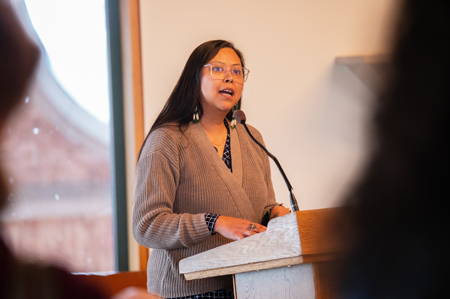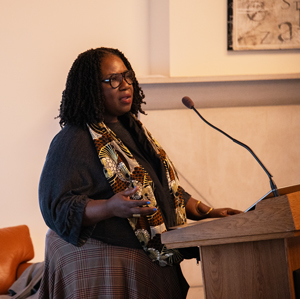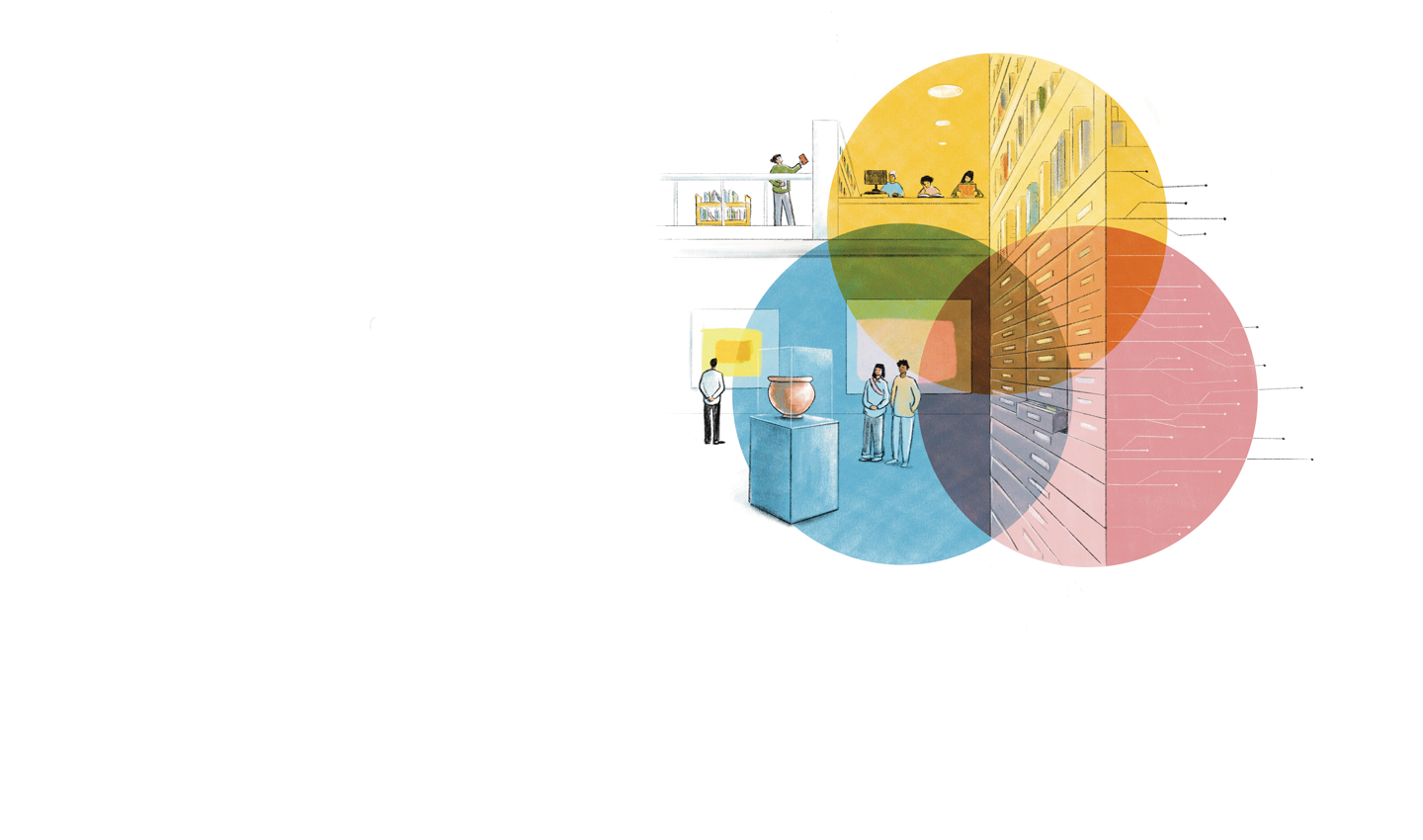
More than two dozen Information School faculty and Ph.D. students are exploring diverse systems of knowledge and how they are produced, collected and accessed. Their work contributes to how libraries, museums and archives adapt to serve their communities.
Since scholarship involving these cultural institutions is so wide-ranging, it can sometimes happen in siloes when collaborations would be more fruitful. A new center housed at the iSchool intends to bring that work together.
The Center for Advances in Libraries, Museums and Archives (CALMA) is charged with creating a community around research related to those institutions and amplifying the work. Through outreach and engagement with working professionals, it aims to bridge research and practice.
“CALMA is distinctive in its focus on three critical institutions that share a lot in common and will benefit from collaborations among both researchers and practitioners,” said iSchool Senior Principal Research Scientist Chris Coward, who teamed with Professor Carole Palmer to establish the center. “It will cultivate synergies to generate scholarly and professional advancements.”

The center, funded in its startup phase by the Gates Foundation, seeks to showcase interdisciplinary research and attract students to professions in libraries, museums and archives. CALMA aims to bring some positive attention to the societal importance of those institutions by calling attention to their progress.
“We want it to be highly visible, and it's the first of its kind,” said Sharon Streams, who joined the iSchool last year as the center’s director of strategy and operations. “There's no other university that has a center focused on any of those institutions, let alone all three.”
Some ongoing projects that align with CALMA’s goals include a study on psychological well-being in art museums; a project exploring the past, present and future of tribal librarianship in Washington; and a nationwide information literacy training program to help library staff navigate misleading or false information.
CALMA intends to fund and partner on research projects as well, particularly on aspects involving outreach and engagement with professionals. It will offer grants and engage practitioners through events and programs. Its first research roundtable, held earlier this year, was on the topic of well-being — both that of professionals working in these cultural institutions and that of the communities they serve. It was the kind of topic the center will prioritize because it resonates with professionals across the cultural heritage sectors, Streams said.
“Practitioners know what well-being is. It's not academic jargon,” she said. “When they hear about this, that can spark really interesting conversations.”
A five-person executive council is leading the center through its launch phase this academic year. It includes four iSchool faculty: Chance Hunt, Jessica Luke, Temi Odumosu and Melanie Walsh. The fifth member, Richard Lewis, is associate dean of libraries at UW Bothell. UW Libraries is among the center’s key partners, with archivists and museologists who will contribute to CALMA’s work.
“CALMA is creating a base of opportunity that should really flourish. It’s rare in our field to have a hub in academia dedicated to engagement among researchers, educators and practitioners,” said Palmer, one of more than two dozen iSchool faculty members with an ongoing role in the center. “Contributions by professionals will be key, and there’s a great start on that with representation on the executive council and with affiliates.”
